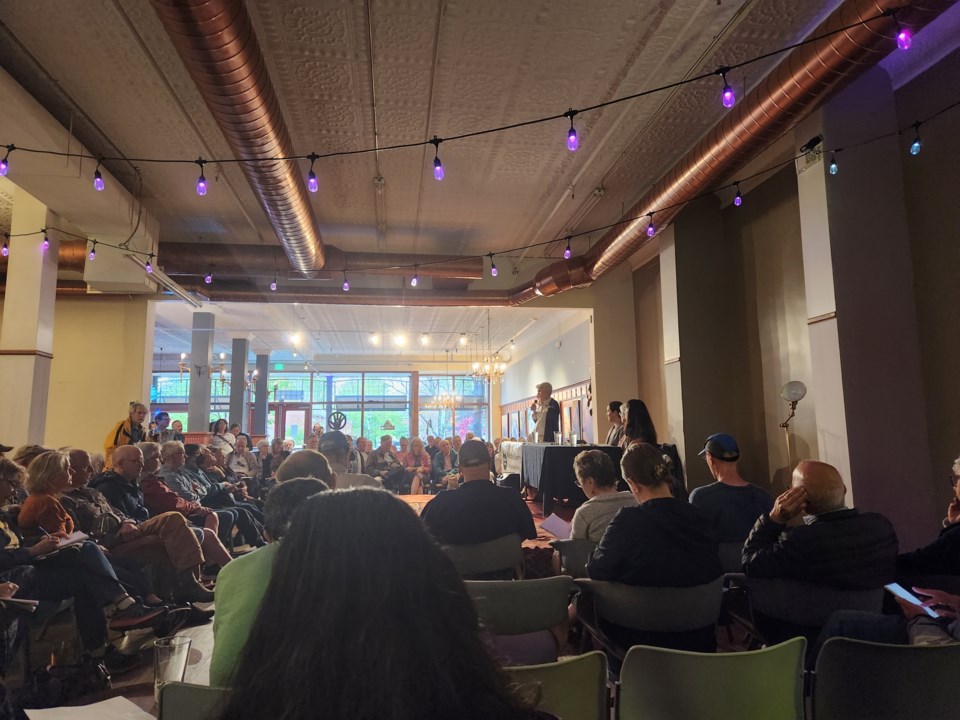Property owners expressed confusion and frustration to the Boulder County commissioners during a town hall Thursday in Longmont.
The commissioners and County Assessor Cindy Braddock hosted the May town hall at La Vita Bella to help explain why residential home values increased by a median of 35% and what this might mean for their property tax bills.
For residents on fixed incomes, the reality was that a major tax bill increase could mean losing their home.
“I’m 77 years old. I’ve lived here in Longmont for 25 years. My property value’s over three and a half to four times what I paid for the house,” one man said. “That doesn’t do me any — I can’t use any of that money. It doesn’t do me any good. I’m living on social security. That’s it. That’s it … It’s running me out of my house. I’m going to end up homeless.”
Braddock explained the valuation process that her office conducts, which is regulated by state law. Tax valuations are done every two years, and the 2023 valuation was done based on sales from July 1, 2020 to June 30, 2022 — when the market was very hot in Boulder County, Colorado and nationwide.
“This is the data we had to use with the rules and process we were required to use as in the statutes and the (state) constitution,” she said.
However, valuation is only the first step in determining property taxes in Colorado. Owners are only taxed on the assessed value of the property, which could change this year depending on issues that may be on November’s ballot.
From there, taxing districts set the mill levy including county and city governments, school districts, fire districts and other entities. Commissioner Ashely Stolzmann emphasized that the county government can only increase property tax revenues by 5.5% a year, meaning that their proportion of property taxes (about 25% for most Boulder County properties) won’t go up by 35%.
“A 40% increase in your values is a not a 40% increase for us,” she said.
For the other taxing entities in Boulder County, Stolzmann encouraged attendees to speak with their elected officials about the impact of this tax increase. While local governments have to go to the voters to raise mill levies, they can set them lower if they so choose.
Braddock added that budget building time, from around late August to early December, is an ideal time to speak with those officials.
On the converse side, Stolzmann pointed out that governments do need money to provide services. She said that while the county will be receiving 5.5% more in taxes next year, their health care costs for their employees distributing services would likely increase by more than that, and the school districts will still have just as many students to teach.
The appeals process for the county assessment is open now through June 8. Property owners who believe there’s been an error in determining their property’s value are encouraged to appeal, which can be done online, through the mail or in person.
The county offers a comparable sales lookup tool for residential property owners to assist in this appeals process, and Braddock encouraged anyone with questions to contact her office. She said property owners are typically successful in their appeals 40-45% of the time.
There will be an online town hall to answer questions about 2023 property valuations specifically for those impacted by the Marshall Fire on Wednesday from 6 -7:30 p.m. Registration is required.



